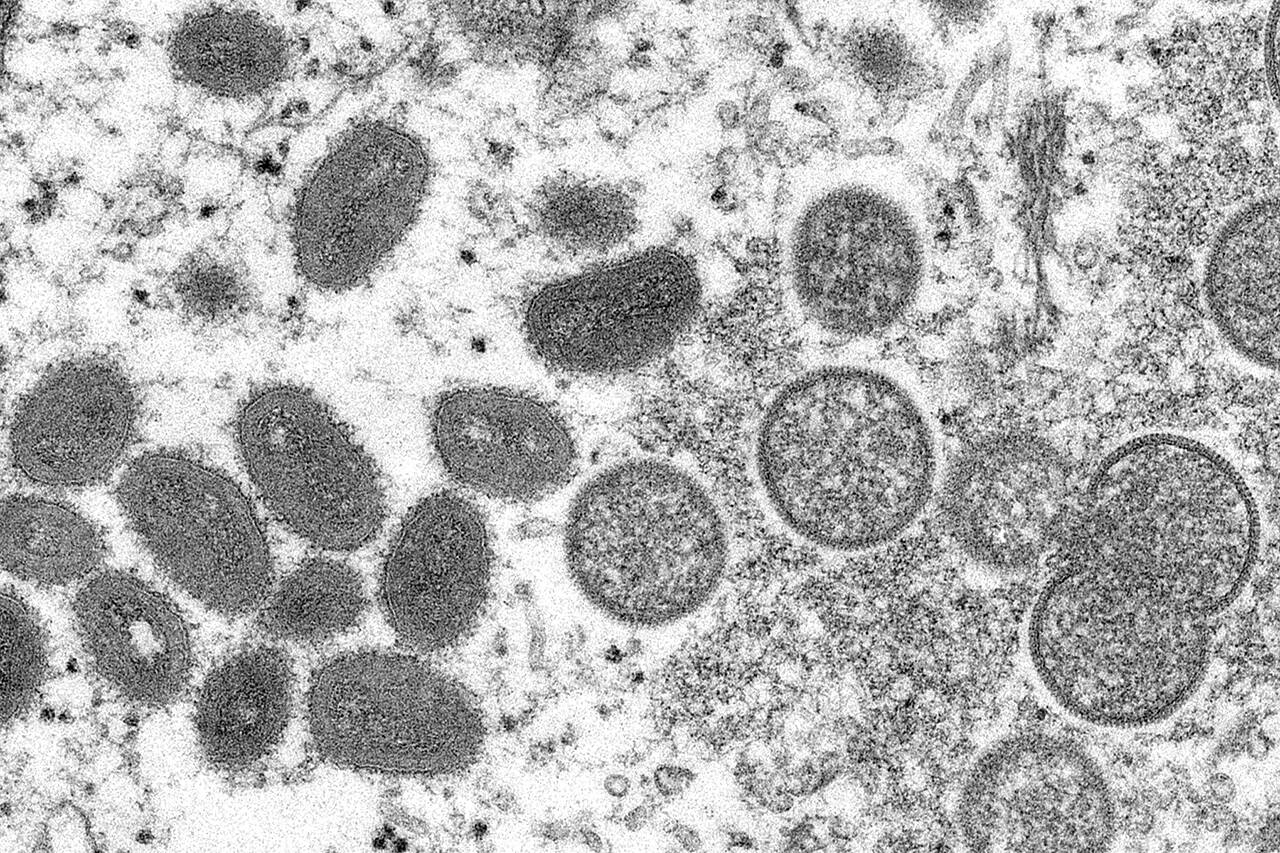EVERETT — Six monkeypox cases had been confirmed in Snohomish County as of Friday, a notable increase in cases since early July, but still far fewer than neighboring King County.
Five of the Snohomish County patients are men and one is a woman “without risk factors associated with this outbreak,” said Kari Bray, a spokesperson for the Snohomish Health District.
At highest risk in the current outbreak are men who are sexually active with multiple male partners, though anybody can catch the virus. Monkeypox is not classified as a sexually transmitted disease, but the virus has primarily been spreading through intimate contact.
Cases in the state have roughly doubled every week, public health officials told reporters Thursday. The state Department of Health reported a total of 179 cases in Washington as of Thursday. About 90% of cases in the state have been reported in King County. Publicly available data may be lagging behind actual case numbers.
As of Friday, for example, the state website said only three cases have been reported in Snohomish County, half the number of cases confirmed by the local health district.
The first two cases in Snohomish County were detected in mid-July.
Over 7,500 monkeypox cases had been confirmed as of Friday in the United States, according to the Centers for Disease Control and Prevention. All but two states have reported cases. Public health experts have said official case counts may not reflect the full scale of the outbreak.
The Biden administration declared monkeypox a public health emergency Thursday amid nationwide vaccine shortages and criticisms over the federal response to the outbreak. The move gives federal agencies access to emergency funding and other resources to speed up research and vaccine development.
According to the CDC, getting vaccinated within four days of exposure can prevent a person from getting monkeypox, but vaccine supply has been limited in Washington.
“We do not have enough vaccine to open up broadly to the whole LGBTQ community or to those at highest risk at this point,” said Michele Roberts, assistant secretary of the state health department’s Prevention and Community Health Division.
Local jurisdictions are required to prioritize vaccinating close-contacts of monkeypox cases, but can use remaining doses to vaccinate people who are at high risk for monkeypox exposure. Almost three-quarters of Washington’s vaccine supply went to King County.
So far, the state has allocated 760 doses to Snohomish County, “an amount much smaller than demand and need,” Bray said. Close contacts of people diagnosed with monkeypox are contacted by the Snohomish Health District. Bray said the health district is working with local health care organizations to create a system to refer people at high risk to providers, who can vaccinate them.
About 20 patients have been referred for a vaccine in Snohomish County.
“We are working to get more doses administered quickly to those who need them,” Bray said.
Over the past few weeks, King County has been vaccinating those considered to be at highest risk of exposure — including “men who have sex with men and have recently had multiple sexual or intimate close contact partners.”
On Saturday, the first community monkeypox vaccination event in the state will be held at Seattle Central College, where up to 500 vaccines will be offered. Anyone over 18 who meets the highest-risk criteria is eligible.
At the end of July, the federal government announced the arrival of hundreds of thousands of monkeypox doses. No more vaccine shipments are scheduled to get to the United States until October at the earliest.
Washington is prioritizing first doses, rather than the two-dose regimen, according to the state Department of Health. Some places in the United States where monkeypox rates are high have opted for a first-dose approach, which has shown promising results in studies.
So far, the United States has only distributed the Jynneos-brand vaccine. But there is another vaccine that can protect against monkeypox, and the United States has 100 million doses of ACAM2000, a smallpox vaccine that can also prevent monkeypox. Some have criticized public health leaders’ decision not to distribute those doses.
The vaccine can have serious side effects. It is not safe for pregnant people, people with eczema and severely immunocompromised people — among others. The way the vaccine must be administered requires extra training. Few states have expressed interest in requesting it, according to reporting by Vox.
“If there are requests from states or territories requesting the ACAM2000 vaccine, CDC will work to ensure that individuals are fully informed on the benefits and the risks before receiving the vaccine,” CDC spokesperson Kristen Nordlund said.
Natalie Kahn: 425-339-3430; natalie.kahn@heraldnet.com; Twitter: @nataliefkahn.
Talk to us
> Give us your news tips.
> Send us a letter to the editor.
> More Herald contact information.

























